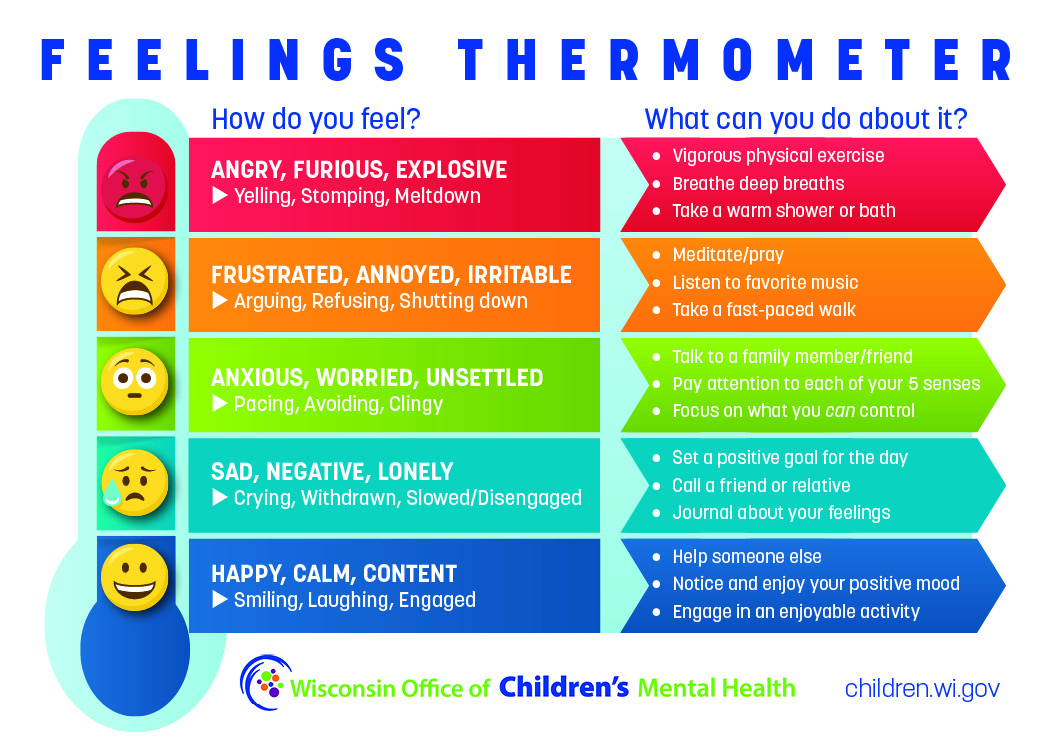As a new school year begins and cases of COVID-19 continue to increase across the state, students, families, and school staff may feel stressed with the transition and uncertainty ahead.
First Lady Kathy Evers, in conjunction with the Wisconsin Office of Children’s Mental Health, launched a Feelings Thermometer in August 2020. It is a tool that measures how you are doing emotionally and suggests steps to take to shift your mood when it gets tough. Readings go from blue (the calm zone) all the way up to red (the furious zone) with a list of corresponding suggested activities. Research tells us that just identifying a calming activity can work to reduce anxiety.

Consider how you might check the emotional temperature of your students:
-
Screen share the Feelings Thermometer at the start or end of your class or meeting to check in on how students are feeling.
-
Share the five feeling levels in Kahoot, PollEverywhere, or another poll platform and ask students to identify which zone they are in.
-
Change your virtual background on Zoom to the Feelings Thermometer.
-
Use it to guide conversations in homeroom, study hall, advisory meetings, individual therapy sessions, or one-on-one check in’s with students.
Talking about Feelings
With the Feelings Thermometer posted, ask students questions like:
-
What can you do right now to move to the blue zone?
-
Have you used any of the strategies on the Feelings Thermometer?
-
What works for you when you are in the red zone?
-
How could you help someone in the green zone?
-
Name another activity that works to move you from the orange zone to the blue zone.
Encourage students to share the thermometer with their parents and have them use it at home to help the whole family stay in the happy/calm zone.
To view and print the Feelings Thermometer, visit the OCMH Feelings Thermometer web page.
Subscriber Submission: Linda A. Hall, director, Office of Children’s Mental Health; Andrea Turtenwald, family relations coordinator, Office of Children’s Mental Health